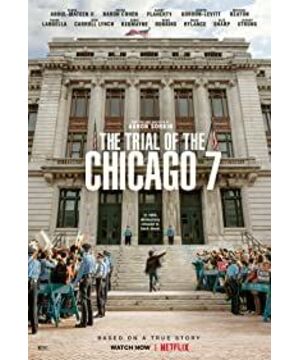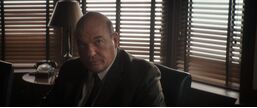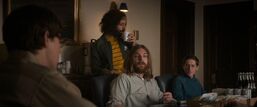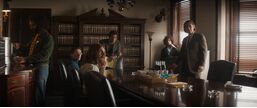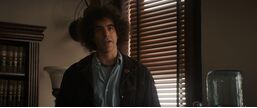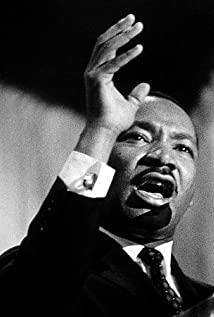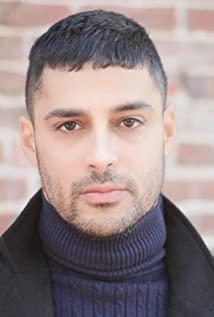First, a real constitutional and the Basic Law, and the real implementation of the Constitution and the Basic Law, have the nationality of the country one can truly countries are known as citizens, because the basic logic of the law and the inevitable personal conflicts and personal Vs systems such as occur Lawsuits and entanglements of similarities and minor differences, such as the government, citizens and governments; secondly, if you want to conduct the so-called real Versus at this level , you need a solid and dialogueable modern national foundation, such as arguing "Why do they define what?" It is called constitutional democracy and citizenship and government? Why can't we define it? New features and new models? Isn't it? "Wait" to reject the basic legitimacy and rationality of the wrangling sophistry, there is no fundamental and constructive meaning at all.
"The Trial of the Chicago 7", adapted from the real civil rights struggles in American history, began in the mixed environment of the American internal environment-anti-war and external environment-Vietnam War. The background of the opening was the then President Linden. Johnson is further insisting on increasing troops, trying to "win" the impossible war, or hoping to withdraw his troops "with dignity." At the same time, the film inserted in the form of a news documentary with Dr. Martin Luther King (Martin Luther King, Jr, January 15, 1929-April 4, 1968) and Minister Robert F. Kennedy (Robert F. Kennedy). Kennedy, November 20, 1925-June 6, 1968) The news of being assassinated and killed immediately after making a series of opposition speeches against the Vietnam War, the rhythm is rapid and consistent, and the swift change, highlighting a strong irony. That is , a gentle and gentle civil rights campaign and policy propositions are extremely likely to fail to face the despicable and shameless behavior without a bottom line . The film also directly used this as an opportunity to enter the main character of the seven gentlemen. The parallel editing of the opening prologue here highlights the full "smell of calm gunpowder": it is a transition, and often the words of the previous character have not been finished, and the lines of the next character have already followed closely, and the audience will In this situation where the “true prediction” of the previous role is not known, the “other prediction” of the next role is received. Although it may not be the original intention of each role, it seems that it can be in such a connection. Through the action plan of the Seven Gentlemen and the Eight Gentlemen Sear in unity as a whole, that is, “ peacefully but effectively, quietly but shockingly, non-violently but forcefully to end such a damn war."The movie is also in such a frustrating and powerful narrative rhythm, leading the audience to quickly enter the play. At the same time, because the audience does not know the true expectations of each character, it can just pave the way for the description of the transition and drama of the characters' growth. In the narrative structure, the “objective” overall “outer focus” (the actual inner focus) that directly unfolds the common actions of all the characters, and the anti-war-killing irony of the opening of Dr. King and Secretary Kennedy is unnecessarily homogenous and assimilated. The whole is also presented as irony. The film adopts an irony structure, undoubtedly to tell the truth and raise awareness in a broader time and space, and this historical fact is in a country that was denounced as a "police country" by serious TV programs at the time. Occurrence is undoubtedly more ironic.
After the prologue, the story jumps directly to the trial preparations five months later, during which the omitted {Chicago Riot} has long become history and has been officially classified as a reactionary nature intended to subvert the government . The story first focuses on the then Attorney General Mitchell. In the era when Nixon was elected, the first task of the new official was to burn "three fires" as it should. He directly addressed the public prosecutor Richard (played by Yucerf) because he had offended the traditional "rituals", whether it was the personal insult of former Attorney General Clark (played by Michael Keaton) or the riots during the demonstrations in Chicago. For the boldness of the arrested seven gentlemen, he all hopes to send them to prison. His speech is full of conservatism, and it is not difficult to understand that he consciously represents the country's violent agency and the face of the country. However, the prosecutor still had some disputes with the Minister of Justice on the issue of whether they really violated the law. Although at the end of the dispute, the two parties did not deny the authenticity of the riots, or the legality of protests, marches, and demonstrations, they raised them. The most critical issue of the division of responsibilities is the demonstrators or the police that really caused the riot? This is the first issue of the division of riot responsibility when omitting the details of the entire riot process, and the suspense is also raised here. The story also puts forward the most important problem in the riot that has become history. Its severity, urgency and importance are self-evident. Solving this problem basically solves the core reality of the entire film. The question is, Sokin also used the simplest J-Cut in Editing 101 at the end of this preparatory scene, so that the slogan of "the whole world is watching" of the demonstrators standing between the two courts and the general public entered the screen ahead of time. , Further highlights the real importance of this real problem.
As a Hollywood gold medal screenwriter, Suo Jin, in this omission, relying on flashback collage "facts" to verify the suspense and answer the "truth" is undoubtedly technically complicated, but ideologically simple. On the one hand, this is his screenwriter. The innocence of technique and the self-confidence of the director's technique, on the other hand, are caused by his natural leftist stance.
The story then officially enters the courtroom, and viewers will also see the natural manifestation of these two aspects. But unlike the previous court scenes where the lawyers or parties of the plea are the mainstay, Sokin’s first effort here is to create the then presiding justice Juliet Hoffman (played by Frank Langra). The audience's impression is obviously conservative, stubborn and full of prejudice. Such judges all hint at the unfairness of the trial itself. In the courtroom, the judge is undoubtedly the highest and can determine the direction of the situation. Such a shaping also indirectly symbolizes the strength of the state apparatus and the indulgence of individuals. In the meantime, the eighth gentleman Black Panther leader, Bobby Sear, was also rejected by the judge because of his lawyer’s surgery, and his motion was rejected by the judge, and he faced the dilemma that no lawyer was present to defend him. It can be regarded as the bad situation of black people at that time. A footnote to, but also a portrayal of the client and his lawyer repeatedly reminding the judge that they are indirectly protected by the law but the judge does not care. In this case, court trials and historical events are intersected, presenting the audience the entire process of court debate and riots. Sorkin is here to continue the efficient cross-editing in the prologue. The sonorous rhythm that was set in the prologue. After experiencing numerous back and forth testimonies approved by city officials; Chicago police and prosecutors undercover the demonstrations; the family members of the jury were "life-threatening" dismissed; and Hayden, the backbone of Freckle's rehearsal, was arrested, etc. The story enters the first key flashback: the direct conflict between police and civilians. Sorkin left the fuse of the bloodshed to the demonstrators, but it is obvious that the Black Panthers did not participate in it. The murder of Illinois Chairman Hampton was obviously premeditated. Regarding the death of a close friend, Sear, the eight gentlemen, was unable to calm down. Faced with the judge's unfair trial in court, he shouted the truth and cursed the judge. Juliet gave him a very drastic punishment for this, and Sear was shackled and blocked. The mouth is full of old punches, which of course speaks out the unfair and extreme treatment that blacks have been suffering from all the time. Judge Juliet’s excessive behavior is undoubtedly a surprise. Although it is consistent with the evidence of his conservative speculation, it breaks his calm and sophisticated characteristics. This surprise not only exceeds the possibility that he is a racist, but also Letting injustice come to the fore, it also constitutes a return of irony. In addition to making Hill's trial invalid and released, it also allows the remaining seven gentlemen to imagine whether the case against them is possible, but the current Minister of Justice targets the predecessor. The attorney general’s revenge, or the current President Nixon’s
The turning point of the plot must happen here, which is really helpless. Then the lawyers approached the former Attorney General Clark. Ironically, the other party directly expressed his intention to appear in court as a witness in front of the current Attorney General's Eagle Dog. In the defense of the pre-trial hall where the jury was excluded, he directly testified:
Next, the lawyers approached the former Attorney General Ramsey Clark, and the other party directly stated that he intended to appear in court as a witness in front of the current Attorney General's Eagle Dog, and directly testified in the pre-trial hall defense that excluded the jury. Out:
"The President is not a client of the Attorney General;
The President asked me if I wanted to file a lawsuit against the people of the Chicago riots, but I refused because our criminal report showed that the Chicago police caused the riots and there was no conspiracy among the seven gentlemen. "
This undoubtedly answers the most critical issue of division of responsibilities, solves the most real contradictions on the surface of the story, and also solves the initial suspense. At the same time, it also constitutes a surprise that can subvert the cognition of everyone (the characters and the audience), thus forming the whole The bottom of the irony is known, and the overall tone of the story is determined by this. But in this new underworld, what happened next was sudden and unexpected. The judge’s decision would not allow the jury to hear the testimony of the former attorney general in any form, meaning that the jury would not hear this. Testimony sufficient to change the nature of the entire riot. The prosecutor’s claim that “the new Ministry of Justice cannot endorse the conclusions of the former Ministry of Justice” is also extremely ridiculous. Why does a state authority just change the corresponding leader and negate all the previous qualitative What about the verdict? Correspondingly, why the motive to sue the Seven Gentlemen and Black Panther Party Sear has also become a new suspense of the bottom-level understanding. In this powerless scene, Sorkin’s portrayal of the seven gentlemen’s grief and indignation is also in place. Not only the seven gentlemen’s main defense lawyer (played by Mark Rylance)’s inability to smash the book, but also the gentle and gentle virtue. Ringer (played by John Carlo Lynch) and his contrast punching the bailiffs showed strange anger to reinforce this sense of powerlessness. Revolving around the motive that makes the character puzzled, in the next scene immediately after, student leader Hayden (played by Little Freckles) and hippie leader Abby (played by Sasha Byron Cohen) conducted a field of thought. Confronted with the revolutionary motives, the results of their arguing are not isolated from each other, but can understand each other, tolerate each other and even achieve each other. This also verifies the effectiveness of effective communication, sincere communication, and reasonable communication. Sex, the true harmony of thoughts and concepts, should be correct and powerful.
Under this dialectical interpretation, the film enters the last flashback to uncover the historical "truth". Around the recording, the lawyer and Hayden preview the dialogue between the witness and the prosecutor. The film indirectly repeats the situation at that time. In this scene At that time, the allowed rally was forced by the police to maintain stability. Hayden’s good friend Lenney was violently enforced and was battered. At that time, as one of the leaders of the march and a student representative, Hayden had already suffered from this situation. Although it is in my chest, but my heart is still in the contradiction between anger and restraint. What is infuriating is that the demonstration without any violent thoughts has encountered unreasonable violent law enforcement. What is restrained is that the situation must not be expanded so that it cannot be controlled by itself. But in the end, under the spread of collective emotions, Hayden encouraged the collective to escalate into violence against the police, which eventually led to riots. The seven gentlemen were finally arrested in front of a bar where upper-class people entered and exited. From the perspective of lines and setting of scenes, the hippie leader Abby revealed the true status of social division at that time: "Outside the bar is the 60th century. In the 1950s, the bar was in the 1950s", "The times are happening under the noses of those who don't care". Sokin dialectically explored the duality of Kochi’s student leaders and affirmed their spirits. However, in the selection of witnesses in court, he emphasized the hippie Abby. This aspect is the so-called "lowest" revolutionary who is also conscious and affirmed. The other side is the self-reference of the cultural people who provoked the cultural revolution in the dispute between Abby and Hayden, and there is bound to be Sorkin’s self-referentiality.
In the last court trial that explained the expression, Abby and the prosecutor gave their own different answers on a sentence, behavior, and even the entire incident. The explanation of the deeper motivation behind this can be said to be a deeper answer to the suspense within. The Nixon administration at that time wanted to judge the minds of citizens, and this was the government's motive. But this kind of behavior is absolutely impossible to be allowed by the people in any country, in any history, in any sense, and this is the people's motive. Regrettably, the seven gentlemen were still convicted by the grand jury. Looking at the ironic narrative used by Sokin throughout the film, when the former Attorney General Clark testified, the jury was excluded, and the jury was in a situation where the seven gentlemen were innocent. Abby’s final statement, although It moved us as spectators and those with free conscience thoughts at that time and in future generations, but the jury in those years would still think that they were just justifying their actions to lead the riots. In the law of the sea, the jury can of course be regarded as a symbol of American citizens. They are deliberately deceived by hidden narrators, and they are unsurprisingly placed in a position of being ironic. As observers, we are undoubtedly always in omniscience. This is the personal limitation of Sokin’s elitism perspective. Just as he sees the viewer, the same as the viewer sees the role, and like the history now, then history is presented to us in this way, and it is most relevant The principle of form is how it is told, so what Sokin wants to express in the final analysis is that history is actually a narrative . There is no doubt that there is a ready purpose behind the narrative, so no matter how Spielberg originally planned to tell the story 7 or 8 years ago, it is now regarded by Sokin as "the present is the present, and the past is still the present." "Speaking in this way, there is no doubt that it is to reflect the current events in the United States, as Hannah Arendt said in "The Human Situation": neoliberalism essentially constructs the concept that everyone believes that they can enter directly and enjoy freedom. , The essence of lack is that people should always believe in the existence of freedom and the willingness to work hard for it.. Even so in the current situation in the United States, in the final analysis, the Black Panther Party Sear’s encounter is a reflection of Freud who was killed by the white police on his knees in 2020; the trial and conviction of the Seven Gentlemen represents the growing American society nowadays. Serious tearing; the current attorney general's private enmity against the former attorney general is more like a re-enactment of Biden, who now understands Wang Zuo's confrontation with the Democratic Party. In essence, the establishment elites (Republicans) and democratic elites (Democrats) behind the ruling class have used values to evade people's willingness to struggle, and they only care about the rule of standing in line.
Jumping out of the drama of the movie story and returning to the realistic meaning of the story, the country is understood as the original intent of the establishment, narration, and practice of democracy, freedom, and equality. The government and political parties, which are part of it, are, at best, administering the country on behalf of others. Their full legal authority is not obtained by the so-called face of the people in power or the national ideology after being insulted or destroyed, and by relying on the ideological state apparatus to judge the people, but should be It is achieved by safeguarding the interests and dignity of the people. The country should not be represented by any government, political party, or individual in power. Only the people can represent the country. The American government vs. the United States in the heading back to the interpretation is the government. Vs people , this is the country's most fundamentally opposed and unified source of contradictions. This may also be the best answer to the new suspense in the new bottom. Criticism of reality, hope of expectation, in Sorkin’s plain lens language, and efficient editing rhythm, converge into a story that the whole world is watching . Perhaps it is Thomas Jefferson’s famous quote. : Dissent is the highest form of patriotism .
View more about The Trial of the Chicago 7 reviews


